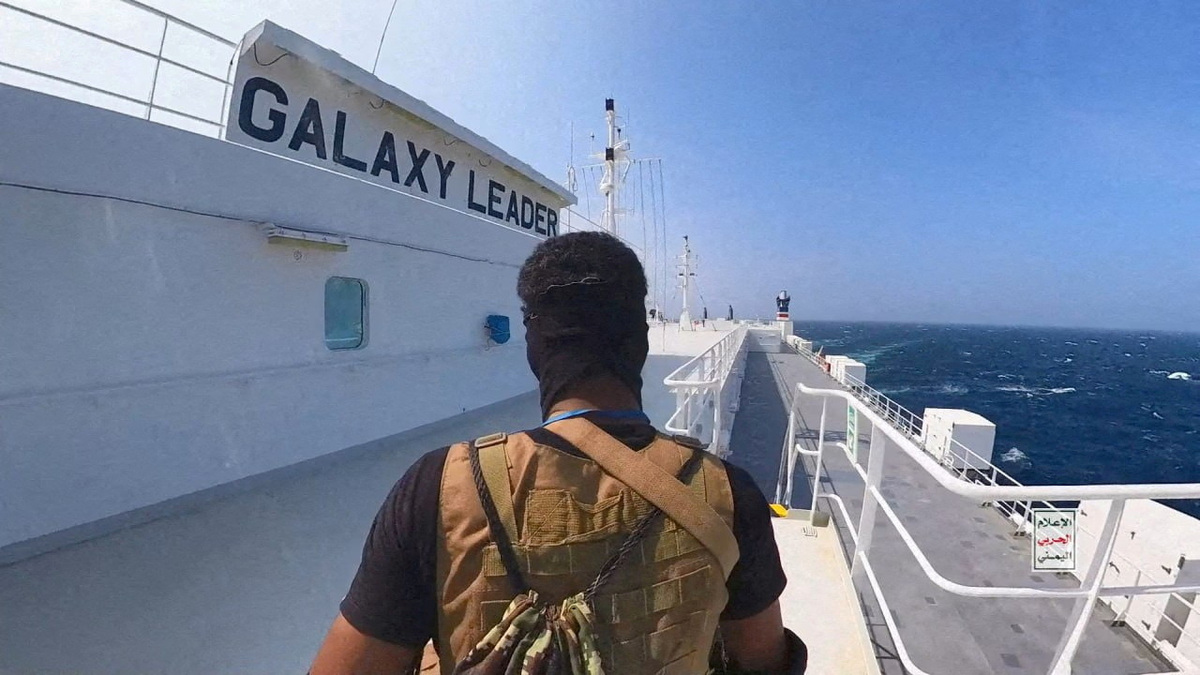Red Sea tensions may cause more turmoil
Houthi attacks throw up challenges for shipping, trade across globe, experts say
By CHEN YINGQUN | China Daily | Updated: 2024-01-22 10:03

Persistent tensions in the Red Sea could lead to increased turmoil and instability in the Middle East and are likely increasingly to influence the global economy, analysts say.
The Houthi group in Yemen has launched attacks against what it calls Israel-affiliated and bound ships in and around the Red Sea since November, demanding an end to Israel's military actions in Gaza.
Because of the persistent targeting of the vessels the United States and its global partners have adopted exceptional measures to defend them. Recently the US has launched rounds of airstrikes on Houthi targets in Yemen.
US President Joe Biden said on Thursday that his administration will return the Houthi group to a terrorist list, with the designation set to be effective next month unless the Houthis cease their threats to ships.
Biden said that the US would continue the strikes, even though they have not stopped the Houthis from continuing to harass commercial and military vessels, and the Houthis said they will continue to attack ships.
Li Haidong, a professor at the Institute of International Relations at China Foreign Affairs University in Beijing, said the US putting the Houthi group back on the terrorist list signifies that it may escalate its military strikes against the Houthis, probably through increased remote attacks rather than engaging in ground attacks.
The US is also putting together an international coalition "Operation Prosperity Guardian" against the Houthis, and several countries have enlisted. The intensity of diplomatic, economic and military encirclement and strikes by the US and its allies against the Houthis is expected to intensify. Whether more countries become involved in the Red Sea tensions needs to be monitored, Li said.
On Saturday, US Central Command forces struck a Houthi antiship missile that was aimed at the Gulf of Aden and prepared to launch, the US military said.
Complicating matters
"The Palestine-Israel conflict continues, and the Red Sea tension is set to further complicate the situation in the Middle East. If more countries are drawn in, tensions in the region are unlikely to ease this year," Li said.
Global maritime trade and supply chains are already affected by the situation in the Red Sea. If the crisis escalates and more countries become involved, the impact on the global economy could be even more significant, he said.
Houthi attacks are aimed at a maritime passage that serves as an essential channel linking Europe and Asia. Opting to detour around the Cape of Good Hope in South Africa can add 10 to 14 days to transit times compared with the direct route through the Red Sea and Suez Canal.
Egypt's economy has been dealt a fresh setback because of a significant decline in income from the Suez Canal. The chairman of the Suez Canal Authority said last week that revenue fell 40 percent in the first 11 days of the year.
The World Trade Organization said on Thursday that the volume of wheat deliveries passing through the Suez Canal fell nearly 40 percent, or half a million metric tons, in the first two weeks of the year.
Raman Singla, director of Corporate Ratings at Fitch Ratings, said escalating tensions in the Red Sea are driving up freight rates, with a notable impact on container shipping, and freight rate increases are forecast for tankers and bulk carriers. These higher prices are expected to exert upward pressure on global inflation.
Furthermore, heightened tensions are likely to disrupt global supply chains, mainly because of extended transit times, which could trigger a domino effect throughout the global economy. The magnitude and duration of these effects will largely hinge on the length of the disruption, Singla said.
Chen Fengying, a senior researcher on the global economy at the China Institutes of Contemporary International Relations in Beijing, said the effects of the Red Sea tensions on the global economy remain relatively limited, but they need to be watched.
Agencies contributed to this story.
























